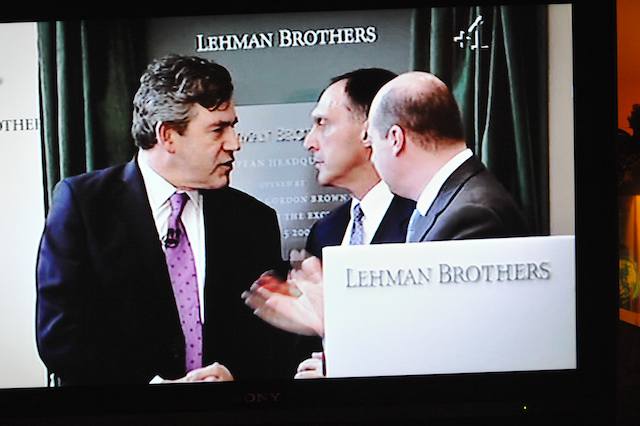Whenever politicians start talking about their ‘vision’ for the country, it is time to start counting the spoons. I remember thinking that when Gordon Brown bottled out of calling an election in the first Autumn of his premiership and went on TV saying that he just wanted time to spell out his ‘vision’ for Britain. I was surprised at the time that so many commentators were willing to take him at face value. But it seems that even the Guardian has finally had enough. Here’s its Leader today:
The truth is that there is no vision from him, no plan, no argument for the future and no support. The public see it. His party sees it. The cabinet must see it too, although they are not yet bold enough to say so. The prime minister demands loyalty, but that has become too much to ask of a party, and a country, that was never given the chance to vote for him. Had there been a contest for the leadership in 2007 – and had Mr Brown called a general election – he would probably have won. He decided not to do these things. And he has largely failed since.
I always thought Brown would make a terrible Prime Minister. He’s secretive, indecisive, obsessive and a control freak. That combination might work in the Treasury. But it would never have worked in Number Ten. And I always had the feeling that Tony Blair had similar thoughts about Brown’s suitability for the highest office — hence my original Homburg Factor post of long ago. Which leads to another thought. Remember the famous ‘Granola Deal’ in which Brown and Blair allegedly decided that Blair would run for the leadership following the death of John Smith? New Labour’s great stroke of luck was that Blair became Leader. If it had been Brown, Labour would have won the 1997 election — for the simple reason that a “dog with a mallet up its arse” (to use a colourful Irish phrase) would have beaten the Tories in 1997 (just as a similarly-equipped mongrel will beat Labour in 2010). But I doubt that Labour would have won a second term with Brown in charge.
For a control freak, the disintegration of his government must be a galling experience. But I’ll be very surprised if he goes voluntarily. Meanwhile, his MPs have nobody to blame but themselves. They, after all, lacked the cojones to have a leadership election after Blair stepped down.
And Enoch Powell was right: all political careers end in failure.

